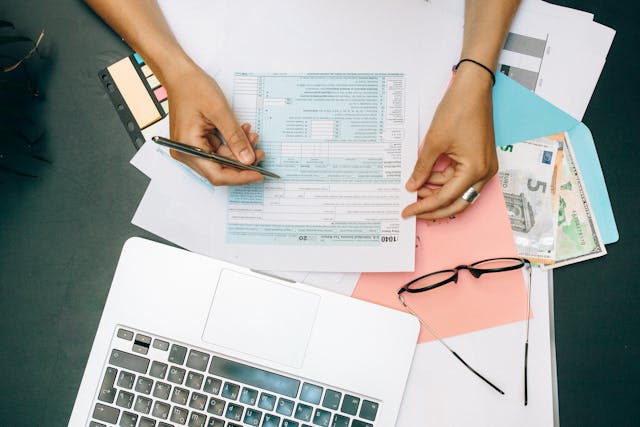Emergency Budget Planning for Indian Families: Effective money management is essential, particularly in unpredictable times. Indian families can maintain financial stability in times of crisis, such as unexpected bills, medical issues, or job loss, by using emergency budget planning. You may continue to live a stress-free life and pay for necessities without going into debt if you have a well-organised emergency budget.

Why is emergency budget planning important?
Because of the unpredictability of life, financial emergencies can occur at any time. Families may have to use credit cards or loans if they don’t prepare ahead, which might result in long-term financial difficulties. Establishing an emergency financial strategy guarantees:
- Financial stability under unforeseen circumstances.
- Decreased reliance on credit cards and high-interest loans.
- More financial control and peace of mind.
- Prudent use of savings and income, avoiding wasteful spending.
- Swift financial crisis recovery that doesn’t significantly affect day-to-day living.
A Comprehensive Guide to Emergency Financial Planning
1. Evaluate Your Present Financial Condition
Prior to making an emergency budget, you need to be fully aware of your financial situation:

- Compute your whole monthly income, which should include your salary, company profits, rental income, and passive income.
- Make a list of every expense, both constant and variable, including rent, groceries, utility bills, loan EMIs, and amusement costs.
- Determine whether spending patterns are superfluous or excessive and make the required adjustments.
- Examine your investments and savings to see whether there are any assets that might be quickly liquidated in an emergency.
2. Set Important Costs First
It’s crucial to concentrate just on essential spending when finances are uncertain:
- Housing costs: In order to prevent fines or eviction, rent or house loan EMIs should be paid on schedule.
- Food & groceries: Limit your purchases to necessities and refrain from wasting money on processed foods.
- Utility bills: In order to sustain everyday operations, priority should be given to electricity, water, internet, and cell recharge.
- Medical costs: It’s important to keep emergency medical money and health insurance payments up to date.
- Education costs: Prioritising tuition and school fees is important.
3. Establish an Emergency Fund
You can handle unexpected financial shocks without taking out loans if you have an emergency fund:
- In a different account, set aside at least three to six months’ worth of necessities.
- To increase your emergency fund over time, pick a liquid mutual fund, term deposit, or high-interest savings account.
- Make sure this fund is not restricted to long-term investments and is readily available.
- Make a consistent monthly contribution to this fund using a percentage of your salary.
4. Reduce Non-Necessary Spending
Reducing wasteful spending can have a significant impact during a financial crisis:
- Cut back on costly coffee shop trips, online meal delivery, and eating out.
- Terminate or reduce gym memberships and streaming services.
- Select inexpensive entertainment choices like public events or free online courses.
- Put off needless device upgrades, luxury shopping, and trips.
5. Expand Your Sources of Income
Finding other sources of income might be beneficial if your present income is insufficient:
- Engage in gig work such as tutoring or consulting, part-time employment, or freelancing.
- Think about leasing an extra room or a piece of unutilised real estate.
- Use websites like Facebook Marketplace or OLX to sell unused goods online.
- Invest in passive income streams like recurring fixed deposit plans or dividend equities.
6. Make a Loan Repayment Plan
In an emergency, loan repayments might be a significant hardship. This is how to deal with them:
- If you’re having financial trouble, speak with your bank about your possibilities for an EMI adjustment or moratorium.
- Make paying back high-interest loans—like credit cards and personal loans—your first priority.
- Refrain from taking out new debts unless it is absolutely required.
- If possible, think about combining loans to get a better interest rate.
7. Make Use of Budgeting Tools and Apps
Effective money management calls for self-control, and budgeting tools can assist:

- To keep track of your earnings and outlays, use programs like Good budget, Money Manager, or Walnut.
- Establish spending caps for several categories and receive notifications when you go over your limit.
- To guarantee that your emergency fund is consistently growing, automate your savings.
8. Make Smart Investments Even in Emergencies
Liquidity is necessary during financial catastrophes, but it’s also critical to keep making wise investments:
- Spread your money among fixed deposits, mutual funds, and gold.
- A part of your investments should be kept in liquid assets, such as liquid funds or short-term fixed deposits.
- Steer clear of high-risk investments, such trading in volatile equities, while things are unclear.
9. Get Ready for Emergencies Medical
Medical Emergencies can quickly deplete savings. By preparing ahead of time, you can avoid financial stress:
- Make sure you and your family have enough health insurance.
- Create a medical emergency fund that is distinct from your general emergency fund.
- Utilise government healthcare programs like Ayushman Bharat to cut expenses.
10. Make a Financial Stability Plan
Beyond emergency budgets, long-term planning is necessary for financial stability:
- Clearly define your short- and long-term financial objectives.
- Review and modify your budget on a regular basis in light of shifting income and spending patterns.
- Teach everyone in the family the fundamentals of emergency preparedness and financial planning.
- Invest in assets that increase in value over time, such as provident funds or real estate.
Questions and Answers (FAQs)
Q1: What is the appropriate amount to put into an emergency fund?

A savings account or liquid investment should include at least three to six months’ worth of critical expenses.
Question 2: Where should my emergency savings be kept?
A: High-interest savings accounts, short-term fixed deposits, and easily accessible liquid mutual funds are the greatest choices for an emergency fund.
Q3: In an emergency, how can I lower my monthly expenses?
A: Prioritise spending on necessities, reduce frivolous spending, buy in bulk, choose more economical options, and use budgeting applications to keep tabs on expenditure.
Q4: In the event of a financial catastrophe, should I cease investing?
A: Not always. Consider switching to low-risk choices, such as gold investments, PPFs, or fixed deposits, while maintaining adequate liquidity, as an alternative to ceasing investing.
Q5: How do I respond if I lose my job?
A: Make prudent use of your emergency money, reduce unnecessary spending, update your resume, look for temporary or freelance work, and upskill to increase your chances of landing a job.
Q6: In times of financial crisis, how can I stay out of debt?
A: Create an emergency fund, stay away from high-interest loans, and, if necessary, look into government aid programs.
Conclusion
For every Indian home, creating an emergency budget is an essential financial practice. Families may handle financial difficulties with little stress if they prioritise necessities, save money for emergencies, cut back on wasteful spending, and increase their sources of income. Disciplined spending and proactive preparation are the keys to financial security.
To ensure long-term stability and protect your family’s financial future, begin putting these methods into practice right now.
Have you prepared a budget for emergencies? Plan now to maintain financial readiness!
Tips for Reducing Monthly Utility Bills in India

